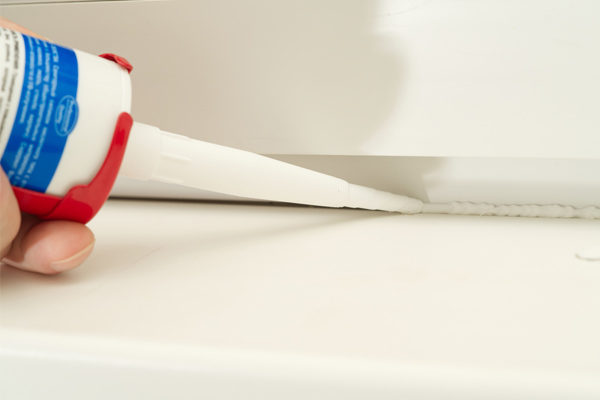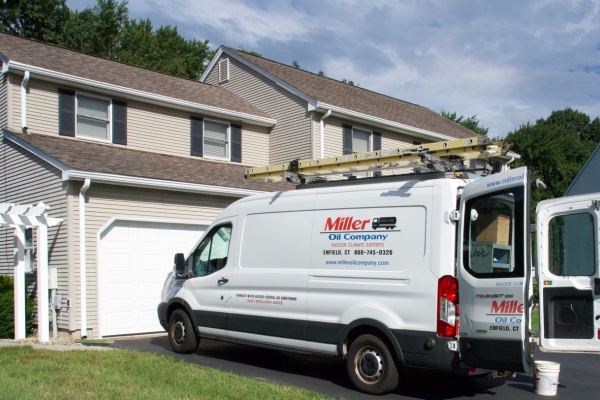Why Your Home Feels So Dry In Winter And What To Do About It

As winter approaches, numerous households experience the uncomfortable consequences of dry indoor air. Dry air symptoms range from static-filled hair to chapped skin and respiratory issues.
At Miller Oil Company, we understand the critical importance of maintaining the air quality in your home. Dedicated to safeguarding your comfort and health against the seasonal decline in humidity, our extensive experience in HVAC systems and air quality management equips us to help you effectively counteract the harsh impacts of dry air.
This article will delve into the common dry air symptoms in indoor settings, examine their extensive effects on health and household conditions, and present practical solutions to replenish humidity levels, boosting comfort and wellness throughout the colder months.
Combatting Winter’s Dry Air: Strategies for a Healthier, Cozier Home
Contents
- 1 Combatting Winter’s Dry Air: Strategies for a Healthier, Cozier Home
- 2 Exploring Dry Air and Its Origins
- 3 Recognizing Symptoms of Dry Air
- 4 Effective Strategies to Address Dry Air Symptoms
- 5 Natural Remedies to Counteract Dry Winter Air
- 6 The Importance of Humidity Levels for Indoor Air Quality
- 7 How Miller Oil Company Can Assist You in Sustaining Healthy Indoor Air Quality This Winter
- 8 Dry Air Symptoms: FAQs
- 9 Conclusion
- 10 Call Miller Oil Company For All Your HVAC Needs

With the onset of colder weather, the air inside homes tends to become excessively dry, emphasizing the importance of managing indoor comfort and health. Here are effective strategies to keep humidity at optimal levels, ensuring your home is a comfortable refuge all winter.
Your Local Specialists in Indoor Air Quality: Offering everything from HVAC maintenance to comprehensive home air solutions, we’re ready to assist you. Contact us today!
Exploring Dry Air and Its Origins

The air during winter becomes notably dry due to the inherent reduction in humidity that comes with cooler temperatures. Indoor heating systems worsen this situation, intensifying the dryness and related discomforts.
As the mercury falls, air’s ability to retain moisture diminishes. Residential heating systems exacerbate this effect by depleting the air of its remaining moisture, resulting in drastically reduced indoor humidity. These conditions can negatively impact both your health and your home.
Dry air draws moisture from various sources, including the skin, throat, and nasal passages, causing issues such as dry skin, irritated eyes, and respiratory discomfort. Additionally, the absence of moisture in the air can cause wooden elements in your home, such as floors and furniture, to contract, crack, or become misshapen, highlighting the importance of managing humidity effectively throughout the colder months.
Battling Dry Air This Winter?: Allow our specialists to enhance comfort and restore balance in your home with tailored HVAC solutions. Reach out to us now!
Recognizing Symptoms of Dry Air
Dry air often reveals itself through various signs during the winter, affecting both personal health and the state of your home.
Health Symptoms

People might face a variety of uncomfortable physical symptoms from reduced indoor humidity. Common issues include dry skin and chapped lips, as the air extracts moisture from the body. Throat and nasal discomfort are also prevalent, causing irritation that may lead to or intensify nosebleeds. Moreover, individuals with respiratory conditions such as asthma or allergies may notice an aggravation of their symptoms owing to the dry air impacting their respiratory system.
Looking for Fresher Indoor Air? Enhance your home’s air quality with our expert HVAC and humidity management services. Contact us today!
Household Symptoms
Dry air’s influence is not limited to health but also affects different areas of your home. Wooden components like floors and furnishings may show signs of cracking as they dry out and contract from the lack of moisture.
Increased static electricity is another common issue, resulting in irritating shocks that indicate low humidity levels. Additionally, the rapid evaporation of water from vases or pet bowls can contribute to the discomfort, necessitating more frequent refills.
Effective Strategies to Address Dry Air Symptoms
Here are effective strategies to mitigate dry air symptoms during the colder months:
- Install a Whole-Home Humidifier: Integrating a whole-home humidifier with your HVAC system promotes uniform and ideal humidity throughout your residence. This setup helps sustain a balanced atmosphere, alleviating typical discomforts caused by dry air.
- Utilize Portable Humidifiers in Targeted Areas: Portable humidifiers help manage humidity levels in designated areas, perfect for bedrooms or home offices. They require consistent cleaning and water replacement to function efficiently and safely.
- Optimize Your HVAC System: Regular maintenance of your HVAC system is vital to prevent it from drying out your indoor air. Arrange for routine servicing and timely replacement of air filters to ensure your heating system runs efficiently, enhancing the air quality in your home.
- Fine-tune Your Thermostat Settings: By modestly reducing your thermostat settings, you can lessen the drying effect of your heating system. This adjustment helps keep indoor humidity at a more comfortable level and can additionally result in energy savings.
Wave Farewell to Winter Woes: With our comprehensive range of whole-home humidifiers and efficient heating solutions, we have everything you need. Contact us now!
Natural Remedies to Counteract Dry Winter Air

Utilizing natural techniques can effectively raise indoor humidity and boost comfort throughout the dry winter season.
- Introduce Houseplants: Adding houseplants such as peace lilies and spider plants to your indoor spaces can notably increase humidity levels through transpiration. This natural process allows plants to take in water via their roots and release moisture vapor into the air through their leaf pores. These plants help humidify and purify the air, offering a dual advantage for any indoor environment.
- Implement Water Bowls: Positioning bowls of water close to heating vents or radiators serves as an easy and effective method to introduce more moisture into the air. As the heating system operates, the water evaporates, raising the humidity levels within the room.
- Address Air Leaks: Seal any drafts or leaks around windows and doors to keep indoor moisture intact and boost your HVAC system’s efficiency. Doing so blocks dry external air from entering and helps sustain a more stable and comfortable indoor climate.
Is Dry Air Affecting Your Well-Being?: Rely on Miller Oil Company to deliver customized solutions for a healthier, more comfortable indoor environment. Reach out to us today!
The Importance of Humidity Levels for Indoor Air Quality
Keeping humidity levels within the ideal range of 30-50% during winter is vital for comfort and health. This balance helps mitigate the symptoms associated with dry air and contributes to a more agreeable indoor atmosphere.
However, it’s critical to guard against over-humidification, as too much humidity can lead to mold development and condensation. These issues can damage the structure of your home and worsen health conditions like allergies and respiratory problems. Maintaining balanced humidity levels is essential for enhancing indoor air quality and preventing issues linked to dry air and excessive moisture.
How Miller Oil Company Can Assist You in Sustaining Healthy Indoor Air Quality This Winter

Miller Oil Company provides expert HVAC solutions designed to improve indoor air quality during winter. Specializing in the installation of whole-home humidifiers, we ensure your HVAC system sustains ideal humidity levels for both comfort and health. Additionally, we offer detailed HVAC maintenance plans that highlight the necessity of regular system evaluations to maintain your HVAC’s efficiency and effectiveness.
Moreover, Miller Oil Company provides personalized consultations to tackle specific dry air issues in your home, guaranteeing that each solution is tailored to suit your individual needs and enhance your living space.
Enhance Your HVAC for Optimal Comfort: Upgrade your system with professional maintenance and air quality improvements. Contact us now!
Dry Air Symptoms: FAQs

Does Dry Air Contribute to Feeling Colder in Winter?
Yes, dry air enhances the evaporation of moisture from your skin, reducing your body’s capacity to hold heat. This effect can make you feel chillier despite the thermostat being set to a cozy temperature. Keeping indoor humidity levels appropriate enhances comfort and helps you stay warmer without boosting your heating expenses.
How Can I Tell If My Home’s Humidity Levels Are Too Low?
Indicators of insufficient humidity often include constant static electricity, regular nosebleeds, dry or itchy skin, and noticeable cracks in wooden furniture or floors. A hygrometer, an easy-to-use tool for gauging indoor humidity can help determine if your home’s humidity is below the optimal 30-50% range.
Which Humidifier Is Best Suited for My Home?
Choosing the right humidifier depends on your household’s specific needs. Whole-home humidifiers connect directly to your HVAC system and offer uniform moisture distribution, ideal for larger areas. Portable humidifiers, however, are excellent for concentrated use in individual rooms. Consult an HVAC expert to ensure you choose the most suitable option for your home and lifestyle.
Safeguard Your Family from Dry Air Effects: Allow us to enhance your indoor environment with sophisticated air quality solutions. Contact us today!
Do Plants Mitigate Symptoms of Dry Air?
Yes, specific houseplants like peace lilies, Boston ferns, and spider plants naturally emit moisture into the air via transpiration. Incorporating these plants into your home can gently boost indoor humidity and enhance air quality by removing pollutants.
Does Operating My Heating System Exacerbate Dry Air?
Certainly, many heating systems, particularly furnaces, tend to lower indoor humidity when heating the air, which can intensify the symptoms associated with dry air. A practical solution is to install a whole-home humidifier that works with your HVAC system to ensure moisture levels remain balanced and comfortable throughout the winter.
Conclusion
The dry air of winter can cause various discomforts and health challenges in your home, including itchy skin, respiratory issues, and damage to wooden items. Maintaining proper humidity levels is essential, and strategies such as employing humidifiers and sealing drafts can effectively mitigate these problems.
Don’t allow dry air to diminish your comfort and well-being this winter. Contact Miller Oil Company for professional HVAC solutions that guarantee your home remains at the ideal humidity level. With the support of Miller Oil Company, you can experience a healthier, more comfortable living environment throughout the season.
Don’t Let Dry Air Spoil Your Winter: Book an assessment with Miller Oil Company and find the perfect solutions for your home. Reach out to us now!
Call Miller Oil Company For All Your HVAC Needs
Miller Oil Company provides trusted heating and cooling services throughout the Greater Enfield, Connecticut area. Our team consists of highly certified technicians skilled in delivering top-notch HVAC tune-ups, repairs, installations, replacements, and much more! Each technician possesses the expertise and experience required to service your HVAC system effectively.
We pride ourselves on offering the region’s most competitive prices for heating and cooling services. Our maintenance services are made to boost energy efficiency, enhance comfort, and reduce heating and cooling expenses. Should you require an HVAC repair or need a new system, we’re here to recommend the optimal solution that fits within your budget.
We stand behind our work with a solid satisfaction guarantee. Call Miller Oil Company today to book a service appointment or benefit from a free, in-home consultation.
To schedule a service appointment, contact Miller Oil Company today. We also offer free, in-home estimates. Click the link to view our service area.

Related Articles:
- Breathing Easy: HVAC Systems & Indoor Air Quality Maintenance
- 7 Reasons Your Filter Isn’t Improving Your Indoor Air Quality
- The Evolution Of Warmth: A Journey Through Home Heating History
- Key Differences Between Forced Air Vs Hydronic Heating Systems
- Furnaces And Filters: Can One Work Without The Other?